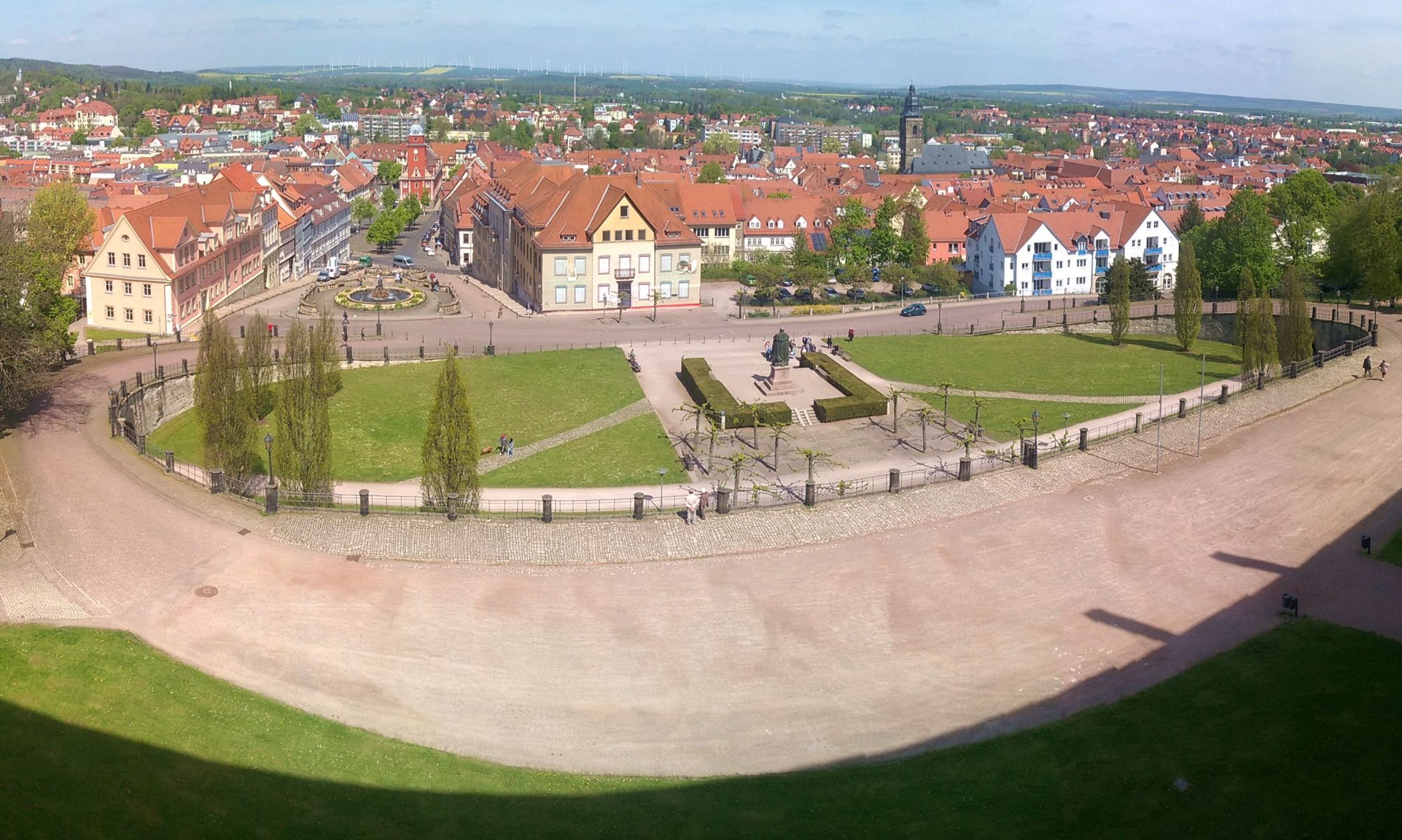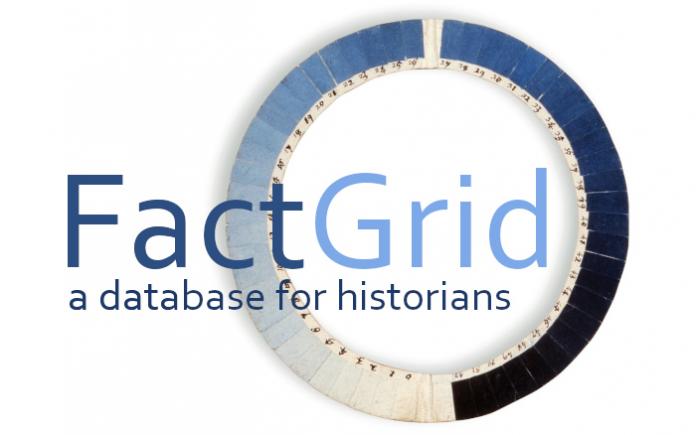Ausschreibung auf Deutsch, Englisch und Französisch; eine Zusammenarbeit der Stelleninhaber im Rahmen des Factgrid, ein Projekt des Forschungszentrums Gotha der Universität Erfurt, ist geplant:
Am Departement für Geschichte der Universität Freiburg sind ab dem 1. März 2022 zwei Doktoratsstellen in frühneuzeitlicher Geschichte (4 Jahre, 100%) zu besetzen. Die Stellen sind Teil des vom Schweizerischen Nationalfonds geförderten Projekts The Mesmerism in Switzerland: interactions, transnational circles and networks, media / Le mesmérisme en Suisse : interactions, cercles et réseaux transnationaux, médias / Der Mesmerismus in der Schweiz: Interaktionen, transnationale Zirkel und Netzwerke, Media unter der Leitung von Prof. Dr. Claire Gantet. Der Zeitpunkt des Stellenantritts ist der 1.3.2022.
1 Dissertation über die Akteure, Geselligkeitsformen, Mobilität und Netzwerke, 1780–1840
1 Dissertation über die Medien des Mesmerismus, 1780–1840
Das Projekt richtet sein Augenmerk auf das Problem des Mesmerismus als von Franz Anton Mesmer (1734–1815) entwickelte neue, maßgebende Behandlungsmethode (Entdeckung der Hypnose und ihre Verwendung in der Medizin) und den Zusammenhang zwischen Glauben und Wissen sowie das Arzt-Patienten-Verhältnis. Dieses wird u.a. aus kultureller, mikrohistorischer und transnationaler Perspektive beleuchtet. Die ausgeschriebenen Dissertationsprojekte sind zudem im Bereich der Wissensgeschichte situiert und werden die Praktiken und Verflechtungen des Mesmerismus untersuchen. Eine Doppelbetreuung (cotutelle) mit einem/einer auswärtigen Experten/Expertin ist möglich.
Ihre Aufgaben
Sie entwickeln ein eigenständiges Forschungsprojekt zum Mesmerismus. Während der Dissertationsphase werden Sie die Gelegenheit haben, an Kolloquien, Workshops und internationalen Konferenzen teilzunehmen und sich mit führenden Expert:innen aus relevanten Forschungsfeldern auszutauschen. Ihre Daten werden die Datenbank Harmonia universalis (https://harmoniauniversalis.univ-paris1.fr/#/) und FactGrid (https://database.factgrid.de/wiki/FactGrid:Early_Modern) ergänzen.
Ihr Profil
Sie sollten spätestens bis zum Zeitpunkt des Stellenantritts im Besitz eines Masterabschlusses in Geschichte der frühen Neuzeit oder der Neuzeit (18.–19. Jht.) oder einem benachbarten Fach sein. Sie sind forschungsorientiert und haben gute Lesekenntnisse in Französisch und Englisch. Linguistische und historische Vorkenntnisse zur damaligen Medizin oder zur Geschichte der Schweiz sowie paläographische oder digitale Fähigkeiten sind sehr willkommen. Die Dissertation kann in Englisch, Deutsch oder Französisch verfasst werden. Für die Dauer des Vertrages müssen Sie in der Schweiz wohnhaft sein.
Was wir bieten
Wir bieten Ihnen die Möglichkeit, ein eigenständiges Forschungsprojekt in Zusammenarbeit und Austausch mit einem motivierten Team zu verfolgen. Das zweisprachige Departement für Geschichte der Universität Freiburg und ihre Vernetzung mit u.a. französischen Spezialisten werden Ihnen darüber hinaus ein stimulierendes Forschungsumfeld bieten. Im Rahmen der Dissertation werden Sie verschiedene Möglichkeiten der fachlichen Begleitung und Entwicklung haben, darunter die Teilnahme an Kolloquien, Workshops, Konferenzen und Publikationen. Wir bieten einen vierjährigen Vertrag mit einem Lohn, der den SNF-Ansätzen für Doktorierende entspricht (ca. 47‘000 CHF im ersten Jahr mit steigendem Gehalt). Gelder für spezielle Forschungsaktivitäten wie Forschungsaufenthalte und Teilnahmen an Konferenzen stehen zur Verfügung.
Ihre Bewerbung sollte enthalten
- Ein Motivationsschreiben: Bitte erklären Sie, was Sie an der Stelle interessiert und warum Sie dafür geeignet sind.
- Ihre Masterarbeit oder eine längere Seminararbeit, wenn möglich mit Gutachten.
- Ein ausführliches Curriculum vitae.
- Kopien Ihrer universitären Zeugnisse und Diplome inklusive Liste der besuchten Kurse.
- Namen und Mailadressen von zwei möglichen Referenzpersonen, die die Universität Freiburg kontaktieren kann.
Sie können das Motivationsschreiben und den Lebenslauf je nach Ihren Präferenzen in Deutsch, Französisch oder Englisch verfassen.
Die Universität Freiburg strebt eine ausgeglichene Repräsentation von Frauen und Männern an. Bewerbungen von Frauen sind deshalb explizit willkommen. Als Unterzeichnerin der DORA-Deklaration legt die Universität Freiburg Wert auf eine qualitative Beurteilung von akademischen Leistungen.
Bitte senden Sie Ihre Bewerbung bis zum 15. Dezember 2021 gebündelt in einem PDF-Dokument per Mail an Claire Gantet (claire.gantet@unifr.ch).
Für weitere Informationen kontaktieren Sie bitte Claire Gantet: claire.gantet@unifr.ch
2 PhD position in early modern history, 18th-19th. c. (Université de Fribourg, Switzerland)
The Department of History of the University of Fribourg invites applications for two PhD positions (4 years, 100%) in early modern history. The PhD thesis will be realized in the framework of the FNS project The Mesmerism in Switzerland: interactions, transnational circles and networks, media / Le mesmérisme en Suisse : interactions, cercles et réseaux transnationaux, médias / Der Mesmerismus in der Schweiz: Interaktionen, transnationale Zirkel und Netzwerke, Media directed by Claire Gantet and financed by the Swiss National Science Foundation. The positions will start on 1 March 2022:
1 PhD thesis: The mesmerism in western Switzerland: sociability, mobility, constellations
1 PhD thesis: An information flow: mesmerism in Switzerland
The project focuses on the problem of Mesmerism as the new and influential method of treatment developed by Franz Anton Mesmer (1734–1815)–discovery of hypnosis and its use in medicine–and the relationships between knowledge and belief or the physician-patient-relationship. It explores it by intersecting multiple perspectives such as cultural, microhistorical, and transnational history. The advertised PhD projects will be situated in the history of knowledge and explore practices and entanglements of Mesmerism.
Your responsibilities
You will define and conduct your own independent research project on Mesmerism. While writing your dissertation, you will be able to participate in international workshops and conferences with leading experts of the field. Your data will be filed in the databases Harmonia universalis (https://harmoniauniversalis.univ-paris1.fr/#/) and FactGrid (https://database.factgrid.de/wiki/FactGrid:Early_Modern).
Your profile
You hold a master’s degree in History (18th-19th century) or a related field by the time you enter the position. You should be highly motivated to do historical research and have good reading skills in French, English and German. Familiarity with history of medicine or history of Switzerland and paleographical or digital abilities are welcome. The PhD thesis may be written in English, German, or French. For the duration of the contract, residency in Switzerland is required.
What we offer
We offer you the possibility to develop your own research project in collaboration and exchange with a highly motivated team situated in the stimulating research environment of University of Fribourg’s bi-lingual department of history and you benefit from its contacts with international experts. Furthermore, we provide you with opportunities for professional development (participation in conferences and publications, workshops with experts in the field). We offer a four-year employment contract with a salary paid according to the SNSF rates for doctoral students (approximately 47’000 CHF for the first year). Extra funding for research activities such as travel to conferences and stays in research libraries is available.
Your application should include
- A letter of motivation: Please explain what makes you a suitable candidate for this position and why you are interested in it.
- Your MA thesis or a significant seminar paper, if possible with the examiners’ report.
- A full CV.
- Copies of your university transcripts and diplomas.
- The names and e-mail addresses of two possible referees whom the University of Fribourg may contact.
The letter of motivation and the CV may be written in German, French, or English, according to the candidate’s preference.
The University of Fribourg strives for a balanced representation of women and men. Applications by women are therefore explicitly welcome. As a signatory of the DORA Declaration, the University of Fribourg attaches importance to a qualitative assessment of academic performance.
Please send your application in one PDF file by e-mail to Claire Gantet (claire.gantet@unifr.ch) until 15 December 2021 at the latest.
For further information, please contact Claire Gantet: claire.gantet@unifr.ch
2 postes de doctorant-e en histoire moderne, XVIIIe-XIXe siècles (Université de Fribourg, Suisse)
Le Département d’histoire de l’Université de Fribourg met en concours deux postes de doctorant-e-s en histoire moderne (4 ans, 100%) à partir du 1er mars 2022. Les postes sont intégrés au projet FNS The Mesmerism in Switzerland: interactions, transnational circles and networks, media / Le mesmérisme en Suisse : interactions, cercles et réseaux transnationaux, médias / Der Mesmerismus in der Schweiz: Interaktionen, transnationale Zirkel und Netzwerke, Media sous la direction de prof. Claire Gantet, financé par le Fonds national Suisse.
1 thèse Le mesmérisme en Suisse occidentale : sociabilités, mobilités, constellations
1 thèse Un flux d’informations : le mesmérisme en Suisse
Les projets se concentrent sur le problème du mesmérisme en tant que nouvelle thérapie très influente élaborée par Franz Anton Mesmer (1734-1815) – découverte de l’hypnose et son utilisation en médecine– et sur les relations entre croyance et science ainsi qu’entre patient et médecin. Ils le font en maniant des perspectives notamment d’histoire culturelle, d’histoire micro-historique et d’histoire transnationale. Les projets de thèse se situent dans le domaine de l’histoire des savoirs et étudieront les pratiques et relations d’interdépendance du mesmérisme. Une cotutelle avec un expert étranger est possible.
Vos tâches
Vous développerez un projet de recherche indépendant sur le mesmérisme. Au cours de votre thèse, vous aurez l’occasion de participer à des ateliers et à des conférences internationales et d’échanger des idées avec des expert-e-s de votre domaine de recherche. Vos données complèteront les bases de données Harmonia universalis (https://harmoniauniversalis.univ-paris1.fr/#/) et FactGrid (https://database.factgrid.de/wiki/FactGrid:Early_Modern).
Votre profil
Vous devez être titulaire d’un master en histoire, si possible des XVIIIe et XIXe siècles, ou dans un domaine connexe avant le commencement du poste. Vous savez mener une recherche de façon autonome et avez de bonnes capacités de lecture en français, en anglais et en allemand. La thèse peut être rédigée en anglais, en allemand ou en français. Vous devez avoir une adresse en Suisse durant la durée du contrat.
Ce que nous offrons
Nous vous offrons la possibilité d’effectuer un projet de recherche indépendant en collaboration et en échange avec une équipe motivée. Le département bilingue d’histoire de l’Université de Fribourg vous offrira également un environnement de recherche stimulant. Dans le cadre de la thèse, vous aurez diverses possibilités de supervision et de développement professionnel, notamment la participation à des colloques, ateliers, conférences et publications. Nous offrons un contrat de quatre ans avec un salaire conforme aux taux du FNS pour les doctorant-e-s (environ 47’000 CHF la première année). Des fonds sont disponibles pour des activités de recherche spécifiques telles que des séjours de recherche et la participation à des conférences.
Votre candidature doit comprendre
- Une lettre de motivation : Veuillez expliquer ce qui vous attire dans ce poste et en quoi vous êtes apte à répondre aux attentes
- Votre mémoire de Master ou un travail de séminaire important, si possible avec le rapport des examinateurs
- Un curriculum vitae détaillé
- Copies de vos certificats et diplômes universitaires avec une liste des cours suivis
- Noms et adresses électroniques de deux personnes de référence que l’Université de Fribourg pourrait contacter
Vous pouvez rédiger la lettre de motivation et le CV en allemand, en français ou en anglais, selon votre préférence.
L’Université de Fribourg s’efforce d’assurer une représentation équilibrée des femmes et des hommes. Les candidatures de femmes sont donc explicitement les bienvenues. En tant que signataire de la Déclaration DORA, l’Université de Fribourg attache une grande importance à l’évaluation qualitative des résultats académiques.
Veuillez envoyer votre candidature sous forme d’un document PDF par courriel à prof. Claire Gantet (claire.gantet@unifr.ch) avant le 15 Décembre 2021.
Pour tout renseignement complémentaire, veuillez contacter Claire Gantet : claire.gantetnifr.ch.

